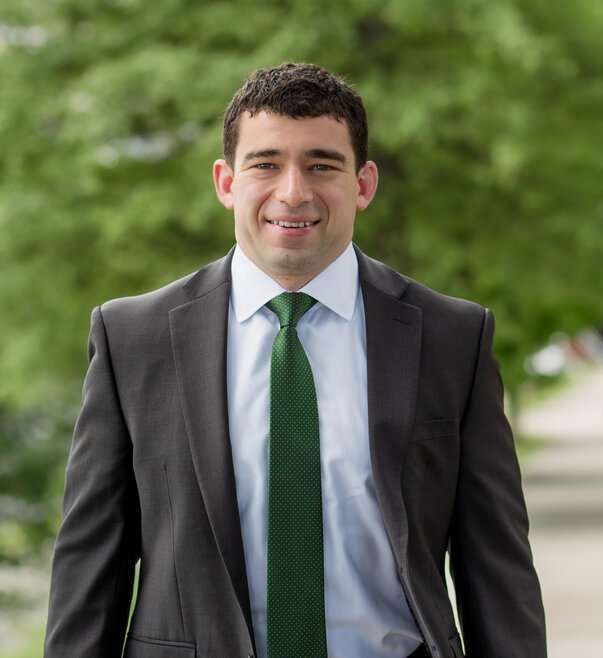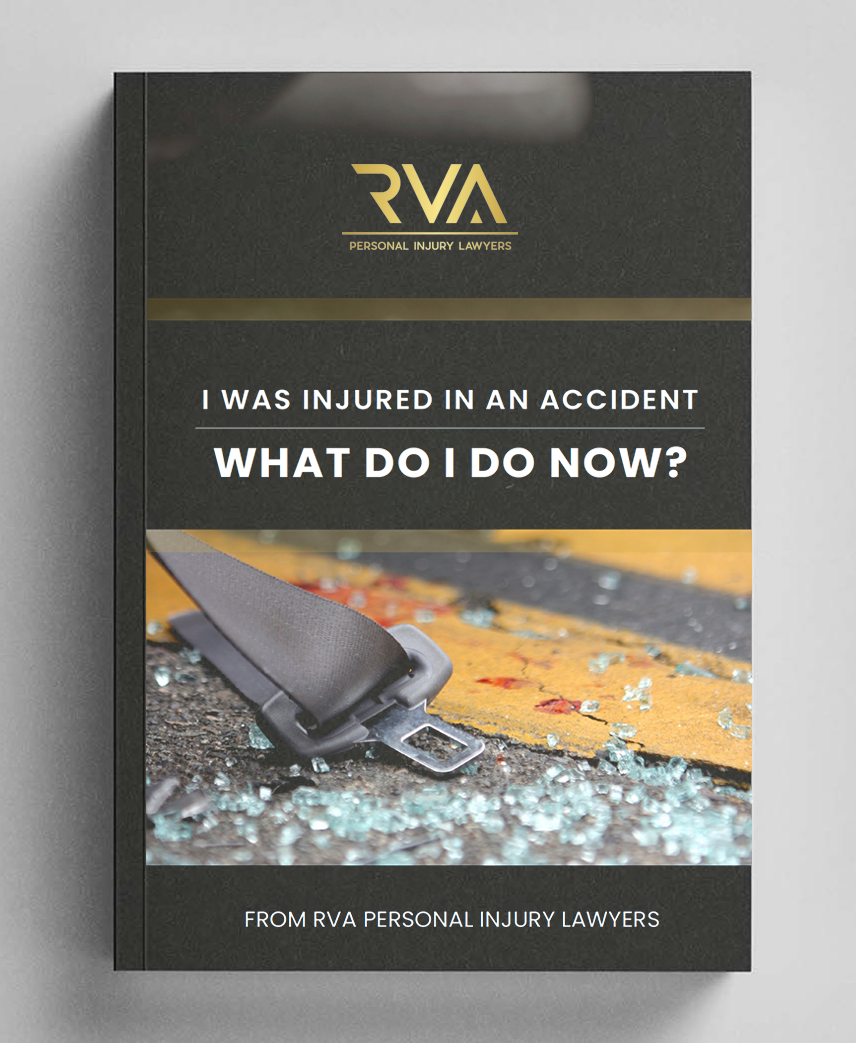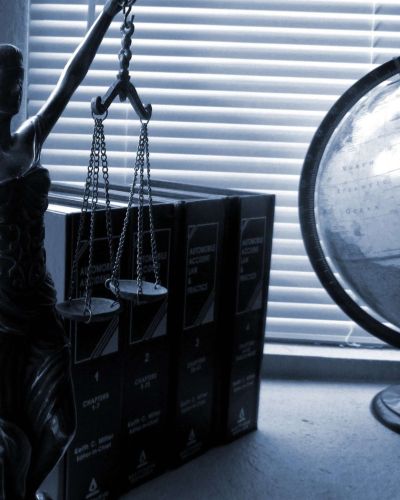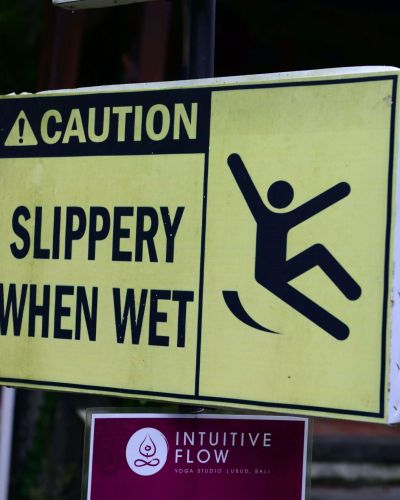Articles, Wrongful Death
Wrongful Death Claim Lawyer: Your Guide to Legal Action

The Virginia wrongful death statute determines who is eligible to file a wrongful death claim, including the personal representative of the estate, immediate family members such as spouses and children, and other financially dependent relatives. A wrongful death lawyer provides legal representation, helping you navigate the legal complexities and ensuring you seek rightful compensation during this challenging time. A wrongful death lawyer can help you seek compensation for emotional distress. In this article, we will cover what wrongful death claims involve, who can file them, the types of damages you can claim, and how a lawyer can assist you.
If you have suffered injuries because of someone else’s negligence, Sharif Gray at Broughton Injury Law can help. We have won millions of dollars in verdicts and settlements. Call Sharif at (804) 915-1611 or contact him online to schedule a free consultation. We will get justice for you.
Key Takeaways
- A wrongful death claim allows beneficiaries to seek financial compensation for damages when death is caused by another’s wrongful act, requiring proof of duty, breach, causation, and damages.
- Only designated individuals, typically the personal representative of the deceased’s estate, can file a wrongful death claim, which highlights the importance of understanding jurisdiction-specific eligibility rules.
- Hiring a wrongful death attorney is essential for navigating the complexities of the legal process and ensuring fair compensation, especially when dealing with insurance companies that may minimize payouts.
Table of Contents
ToggleUnderstanding Wrongful Death Claims
A wrongful death claim arises when a person’s death is caused by another’s wrongful act, allowing beneficiaries to seek damages. Essentially, it is a civil lawsuit for financial compensation due to death caused by another’s negligence. Unlike personal injury claims, which are initiated by the injured party, wrongful death claims are brought by the deceased’s beneficiaries.
To successfully pursue a wrongful death claim, several elements need to be proven: duty, breach, causation, and damages. The plaintiff must demonstrate that the defendant’s willful or wanton conduct more likely than not caused the death. This burden of proof, while substantial, is critical in establishing the foundation of the claim. Having legal representation is crucial to navigate the complexities of a wrongful death claim.
Understanding how a wrongful death lawsuit works involves comparing it to a personal injury lawsuit. Both require proving negligence, but wrongful death claims focus on securing compensation for the surviving family members. The process typically starts with negotiating a settlement through a demand letter. If a settlement cannot be reached, the case proceeds to litigation, where the plaintiff must prove the defendant’s negligence in court.
Wrongful death claims serve a dual purpose. They act as personal injury claims for the deceased while also providing compensation for surviving family members. This dual role highlights the importance of wrongful death claims in addressing both the financial and emotional impacts of a loved one’s death.
Notably, wrongful death claims can be pursued even if the responsible negligent party has not been convicted in a criminal case, including cases involving negligent parties. This aspect underscores the independent nature of civil lawsuits and their focus on compensating survivors rather than punishing wrongdoers in a wrongful death suit.
What is a Wrongful Death Lawsuit?
A wrongful death lawsuit is a civil legal action initiated by the surviving family members or the estate of a deceased person whose death was caused by the negligence or intentional actions of another party. The primary goal of a wrongful death lawsuit is to seek financial compensation for the losses and damages suffered by the surviving family members. These losses can include medical expenses incurred before death, funeral and burial costs, lost wages, and the pain and suffering endured by the family.
Wrongful death lawsuits serve to hold the negligent party accountable and provide a measure of justice for the deceased person’s loved ones. By pursuing a wrongful death lawsuit, families can alleviate some of the financial burdens that arise from such a tragic event and ensure that the responsible party is held liable for their actions.
Who Can File a Wrongful Death Claim?
In general, the right to file a wrongful death claim is reserved for designated individuals, typically only the personal representative of the decedent’s estate. This personal representative, often a beneficiary of the estate, holds the exclusive right to initiate a wrongful death lawsuit. This ensures that the claim is pursued by someone with a direct interest in the outcome.
Beneficiaries of wrongful death claims usually include immediate family members such as spouses, children, and parents. These family members are considered the primary individuals impacted by the loss and therefore are entitled to seek compensation. However, the eligibility and rules for filing a wrongful death claim can vary by jurisdiction, impacting how claims can be initiated. The wrongful death statute plays a crucial role in determining who is eligible to file a claim and the relevant timelines for lawsuits. Understanding the legal process is essential when filing a wrongful death claim to ensure all legal requirements are met.
Families can file wrongful death lawsuits for deaths caused by criminal actions, highlighting the serious implications of such cases. The involvement of criminal elements in a wrongful death case often emphasizes the need for legal expertise to navigate the complexities involved.
Types of Damages in Wrongful Death Lawsuits
When pursuing a wrongful death lawsuit, understanding the types of wrongful death damages that can be claimed is crucial. Economic damages refer to the monetary losses incurred as a result of the death. These typically include lost wages, medical expenses incurred before death, and funeral and burial costs. Such damages aim to alleviate the financial burden placed on the surviving family members.
Non-economic damages, on the other hand, compensate the family for emotional losses. These include grief, loss of companionship, and the emotional impact of the loved one’s death. Emotional suffering is a significant component of these damages, recognizing the profound, non-financial impact the death has on the family.
In some cases, punitive damages may also be awarded. These are intended to punish the defendant and deter similar wrongful conduct in the future. While not always applicable, punitive damages serve as a significant deterrent against egregious behavior that results in wrongful death.
Proving Wrongful Death
Proving a wrongful death case requires establishing that the defendant’s actions or inactions directly caused the decedent’s death. This involves presenting compelling evidence that demonstrates the defendant’s negligence or intentional misconduct. Key pieces of evidence in a wrongful death case can include:
- Witness Statements: Testimonies from individuals who witnessed the incident or have relevant information about the circumstances leading to the death.
- Medical Records: Documentation of the decedent’s medical condition, treatments received, and the cause of death.
- Police Reports: Official reports that detail the incident, including any findings of fault or negligence.
- Expert Testimony: Insights from professionals such as medical experts, accident reconstruction specialists, or forensic analysts who can provide an informed perspective on the case.
- Video or Photographic Evidence: Visual documentation that captures the incident or the aftermath, helping to establish the sequence of events.
The plaintiff must convincingly show that the decedent’s death was a direct result of the defendant’s actions and that the death would not have occurred but for those actions. This burden of proof is essential in securing a favorable outcome in a wrongful death case.
Role of a Wrongful Death Attorney
Hiring a wrongful death attorney is crucial for several reasons. First and foremost, an attorney can alleviate the financial pressure on the grieving family by improving the chances of securing compensation. Engaging a wrongful death attorney early helps navigate complex legal statutes and requirements. A wrongful death attorney provides essential legal advice throughout the process.
A wrongful death lawyer plays a vital role in investigating the circumstances surrounding the death and identifying liable parties. Examining the case’s details allows the attorney to evaluate the claim’s value and seek appropriate compensation. This professional expertise ensures that no aspect of the case is overlooked, especially when wrongful death lawyers are involved.
Negotiation is another critical area where a wrongful death attorney’s skills are indispensable. Lawyers often negotiate settlements to resolve cases out of court but are prepared to take the case to trial if necessary. This dual capability ensures that you have robust representation throughout the process.
Before accepting any settlement offer from an insurance company, it is vital to have a knowledgeable wrongful death attorney review the offer. This step ensures that you receive fair compensation that reflects the full extent of your loss.
How to Choose the Right Wrongful Death Lawyer
Selecting the right wrongful death lawyer can significantly impact the outcome of your case. It is essential to choose a lawyer with specific experience in wrongful death cases, as this can enhance the effectiveness of your representation. Checking their experience in personal injury law, particularly in cases similar to yours, is a good starting point.
Reviewing an attorney’s track record and their legal expertise, including their success rates and settlements, provides valuable insights into their capability. This information helps you gauge their proficiency and likelihood of securing a favorable outcome. Trusting your instincts when selecting a lawyer is essential for a comfortable working relationship.
Many wrongful death attorneys operate on a contingency fee model, meaning fees are only applicable if the case is won. This arrangement allows you to access legal representation without upfront costs. During initial consultations, inquire about who will handle your case and their relevant experience.
The Legal Process for a Wrongful Death Claim
The legal process for a wrongful death claim begins with a thorough investigation to determine the cause of death and identify responsible parties. This initial phase involves collecting evidence, such as medical records, witness statements, and accident reports. These documents form the foundation of your case.
Filing a wrongful death claim requires specific documentation, including the death certificate and proof of relationship. Once the claim is filed, the negotiation stage often involves settlement negotiations, mediation, or arbitration to expedite the process. These methods can help resolve the case without the need for a lengthy trial. Understanding the legal proceedings involved in a wrongful death claim is crucial for navigating the process effectively.
If a settlement is not reached, the case proceeds to trial. This stage requires extensive preparation and substantial evidence gathering, which can take months or even years before a jury trial occurs. The final deposition might indicate the closing stages of a wrongful death case, leading to either a trial or settlement.
Wrongful death cases often end without a wrongful death settlement, sometimes leading to court litigation. This possibility underscores the importance of having a skilled attorney to navigate the complexities of the wrongful death lawsuit work.
The Wrongful Death Lawsuit Process
The wrongful death lawsuit process involves several key steps, each requiring careful attention and legal expertise. Here’s an overview of what to expect:
- Determine if you have a valid claim: Establish that the death was caused by the negligence or intentional actions of another party.
- Identify the negligent party: Determine who is responsible for the death, whether it’s an individual, company, or government entity.
- Gather evidence: Collect medical records, police reports, witness statements, and other relevant documents to support your claim.
- Consult with a wrongful death attorney: Seek legal advice to navigate the complex legal process and ensure you receive the compensation you deserve.
- File a wrongful death lawsuit: Submit a complaint to the court, outlining the facts of the case and the damages sought.
- Serve the defendant: Notify the defendant of the lawsuit by serving them with the complaint and summons.
- Discovery process: Exchange information and evidence with the defendant to build your case.
- Negotiate a settlement: Attempt to reach a settlement through mediation or other forms of alternative dispute resolution.
- Go to trial: If a settlement cannot be reached, present your case in court, where a judge or jury will determine the outcome.
How Long Does It Take to Settle a Wrongful Death Claim?
The timeline for settling a wrongful death claim can vary widely, influenced by several key factors, including the duration of settlement negotiations. While some cases may reach a resolution within a few months, others can extend over several years. Understanding these variables can help set realistic expectations for the process.
What to Expect from a Wrongful Death Settlement
A wrongful death settlement is a financial agreement reached through settlement negotiations between the plaintiff and the defendant (or their insurance company) to resolve the lawsuit without going to trial. The settlement amount varies based on the specifics of the case, including the severity of the defendant’s actions, the extent of the decedent’s injuries, and the overall impact on the surviving family members.
Typically, a wrongful death settlement may include compensation for:
- Medical Expenses: Costs incurred for medical treatment prior to the decedent’s death.
- Funeral Expenses: Costs associated with the funeral and burial services.
- Lost Wages: Compensation for the income the decedent would have earned had they lived.
- Pain and Suffering: Monetary compensation for the emotional distress and suffering experienced by the family.
- Emotional Distress: Additional compensation for the psychological impact on the surviving family members.
- Punitive Damages: In cases of particularly egregious conduct, punitive damages may be awarded to punish the defendant and deter similar behavior in the future.
The settlement may also account for future financial losses, such as lost income and benefits that the decedent would have provided. Understanding the components of a wrongful death settlement helps families know what to expect and ensures they receive fair compensation for their loss.
Statute of Limitations for Wrongful Death Claims
In Virginia, individuals have a two-year period from the date of death to file a wrongful death lawsuit. This time frame is critical as missing the statute of limitations deadline means losing the right to take legal action for wrongful death. The statute of limitations specifically starts from the date of death rather than the date of the incident that led to the death, which is important in a Virginia wrongful death lawsuit.
Understanding this time constraint is vital for preserving your right to seek compensation. It emphasizes the need to act promptly and consult with a wrongful death attorney to ensure all legal deadlines are met.
Costs Associated with Wrongful Death Cases
Typically, a wrongful death attorney is compensated through a contingency fee system, receiving a percentage of the judgment if the case is won. This arrangement makes legal representation accessible without the burden of upfront costs.
However, other expenses can add up quickly. Expert witnesses, for instance, can significantly inflate costs, often requiring tens of thousands of dollars for reports and testimony. Litigation expenses also include costs for copying documents, filing fees, and various other expenses such as court reporter fees, research costs, and litigation costs.
Understanding these costs beforehand helps in planning and preparing for the financial aspects of a wrongful death case. It underscores the importance of discussing potential expenses with your attorney to avoid unexpected financial strain.
Who Pays for a Wrongful Death Lawsuit?
Determining who bears the financial responsibility in a wrongful death lawsuit involves understanding the roles of various parties, including the negligent party, insurance companies, and the estate of the deceased.
Insurance Companies and Wrongful Death Claims
Insurance companies aim to reduce their financial exposure by minimizing payouts in wrongful death claims. During settlement negotiations, they often offer settlements that are lower than what the claimants deserve to avoid more significant payouts. This tactic is a common challenge faced by grieving families seeking fair compensation.
Insurance adjusters may use various strategies to persuade claimants to accept low offers or make statements that weaken their case. These tactics can complicate the resolution of wrongful death claims, adding to the emotional and financial burden on the family. After a wrongful death claim is filed, insurance companies may employ stall tactics, make lowball offers, or stop responding to claims altogether.
The role of a wrongful death attorney includes navigating these complexities and ensuring fair compensation. Attorneys are well-versed in countering the tactics used by insurance companies and can negotiate on behalf of the family to secure a rightful settlement. However, the compensation available in wrongful death cases can be limited by the insurance policy limits of the responsible party.
Do You Have to Pay Taxes on a Wrongful Death Settlement?
Generally, the proceeds from a wrongful death settlement are not considered taxable income by the IRS. This means that the compensation received for medical expenses, funeral costs, lost wages, and pain and suffering is typically tax-free. However, there are some exceptions to this rule:
- Punitive Damages: If the settlement includes punitive damages, these amounts may be considered taxable income.
- Interest on the Settlement: Any interest earned on the settlement amount may be subject to taxation.
- Attorney Fees: While attorney fees are often deducted from the settlement, they may be deductible as a business expense, depending on the circumstances.
Given the complexities of tax laws, it is advisable to consult with a tax professional to fully understand the tax implications of your wrongful death settlement. This ensures that you comply with tax regulations and make informed decisions about your financial situation.
Summary
Navigating the aftermath of a loved one’s wrongful death is undoubtedly challenging. Understanding wrongful death claims, knowing who can file them, and comprehending the types of damages available are crucial steps in seeking justice and securing proper legal representation. The role of a wrongful death attorney cannot be overstated, as their expertise and support can significantly impact the outcome of your case. Having legal support during the wrongful death claim process is essential to navigate the complexities and ensure a fair resolution.
By choosing the right lawyer, understanding the legal process, and being aware of the costs and insurance tactics involved, you can better prepare for the journey ahead. Remember, time is of the essence due to the statute of limitations, so acting promptly is essential. Seeking legal assistance ensures that your loved one’s memory is honored, and justice is pursued.
Frequently Asked Questions
Who can file a wrongful death claim?
A wrongful death claim is typically filed by the personal representative of the deceased person’s estate, with immediate family members like spouses, children, and parents often being the beneficiaries. These claims can arise from various situations, including criminal actions.
Filing a Wrongful Death Lawsuit
Filing a wrongful death lawsuit is a significant step in seeking justice and compensation for the loss of a loved one. The process begins with determining whether you have a valid claim. This involves establishing that the death was caused by the negligence or intentional actions of another party. Once you have a valid claim, the next step is to identify the negligent party responsible for the death. This could be an individual, a company, or even a government entity.
Gathering evidence is crucial to support your claim. This may include medical records, police reports, witness statements, and other relevant documents that can help build a strong case. Consulting with a wrongful death attorney is essential at this stage. An experienced attorney can guide you through the legal process, help gather necessary evidence, and provide expert advice on the best course of action.
Once you have consulted with an attorney, the next step is to file a wrongful death lawsuit. This involves submitting a complaint to the court, outlining the facts of the case and the damages you are seeking. The defendant must then be served with the complaint and summons, notifying them of the lawsuit and requiring them to respond.
The discovery process follows, where both parties exchange information and evidence. This stage is critical for building your case and preparing for potential settlement negotiations or trial. If a settlement cannot be reached, the case may go to trial, where a judge or jury will hear the evidence and determine the outcome.
What types of damages can be claimed in a wrongful death lawsuit?
In a wrongful death lawsuit, you can claim economic losses such as lost wages and funeral expenses, non-economic losses including grief, emotional suffering, and loss of companionship, and in some cases, punitive damages aimed at punishing the defendant.
How long do I have to file a wrongful death claim in Virginia?
You must file a wrongful death claim in Virginia within two years from the date of death to initiate legal action. Failing to do so will result in the loss of your legal right to pursue the case.
What role does a wrongful death attorney play?
A wrongful death attorney plays a crucial role in investigating the circumstances surrounding the death, identifying liable parties, determining the claim value, negotiating settlements, and representing the family in court. Their expertise and legal advice ensure that families receive the justice and compensation they deserve.
What costs are associated with wrongful death cases?
Wrongful death cases incur costs such as attorney fees, typically on a contingency basis, alongside expert witness fees and various litigation expenses like document copying and filing fees. It is essential to consider these financial implications when pursuing a case.
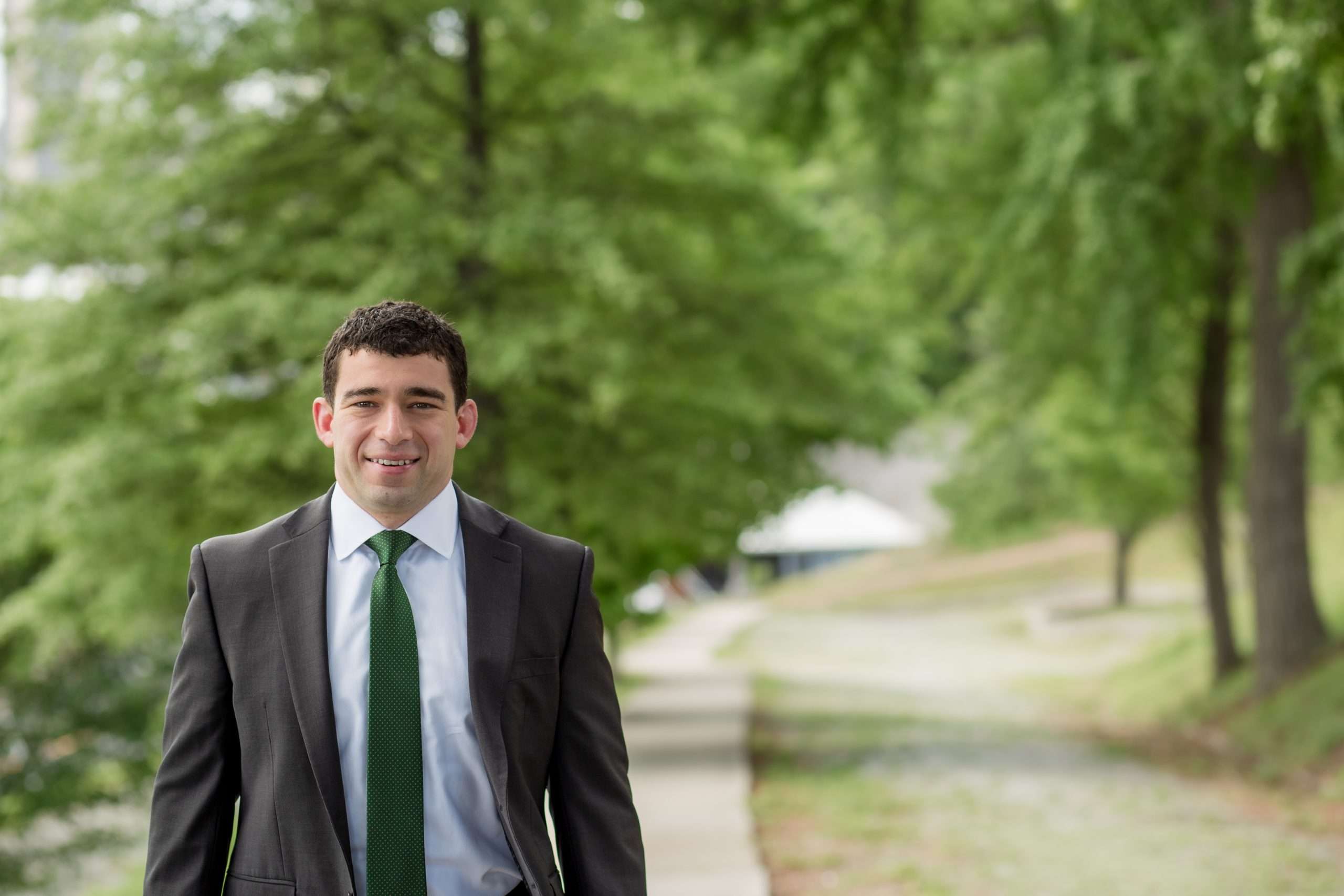
“We Get Justice For Injured People, and We Love What We Do”
Sharif Gray works as a trial lawyer at Broughton Injury Law. Sharif has proven that he can and will get results in court, and the insurance companies know that. If you have suffered injuries because of someone else’s negligence, we can help.
Sharif is committed to trying cases well. Because of that, he does not handle hundreds of cases at a time. He is selective in the cases he takes so he can get justice for the people he represents. In every case, he has three goals:
- Hold the responsible corporation or individual fully accountable.
- Make the community safer, so others are not also harmed.
- Compensation that recognizes the full and fair value of what was taken from your health and quality of life.
Sharif loves what he does, and he is proud of the positive impact he has had and will continue to have on the people he represents and the community he lives in.
If Sharif can be of help to you, please do not hesitate to call him at (804) 915-1611 or contact him online to schedule a free consultation. We will get justice for you.
$10,000,000
Defendant, while racing on a residential road, crashed into an oncoming driver causing catastrophic injuries.
$9,000,000
Defendant failed to properly secure a display at its store which led to it falling on a child causing life altering injuries.
$1,500,000
Defendant failed to keep the entrance of its store safe for the public causing significant injuries.
